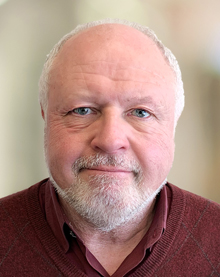Printed in the Fall 2021 issue of Quest magazine.
Citation: Smoley, Richard, "From the Editor’s Desk" Quest 108:4, pg 2
From the Editor’s Desk
 Many people claim to have spiritual teachers whom they barely knew and who barely knew them. The teacher might have thousands, even tens of thousands of disciples, so it has always been hard to understand how any one of them (outside the innermost circle) can claim that individual as any kind of preceptor.
Many people claim to have spiritual teachers whom they barely knew and who barely knew them. The teacher might have thousands, even tens of thousands of disciples, so it has always been hard to understand how any one of them (outside the innermost circle) can claim that individual as any kind of preceptor.
It’s not my business to say who is whose teacher, or under what circumstances that name applies. But I would find it difficult to go to a weekend workshop—even, say, a Tibetan Buddhist empowerment—and claim the instructor was my teacher afterward. Even if one has attended many such workshops by the same person.
This observation forms the core of this issue. Three articles—by Lucy Oliver, Joscelyn Godwin, and the Members’ Forum by Ed Abdill—show another aspect of the spiritual teacher in our time: an individual, who may or may not be in any known lineage, who attracts a few dozen students with whom he or she works on a long-term basis. To me, this setup has far more potential for promoting long-term development than practically any other in this age.
The teachers in question were not gurus as such: they did not demand devotion and, in the case of Lucy Oliver’s Glyn, whom I knew myself, actively repudiated it. (For my portrait of Glyn, see “From the Editor's Desk Spring 2015,” Quest, spring 2015.) Nevertheless, they conveyed a certain knowledge and power that enabled their students to advance in a way that very few spiritual programs have.
In a Theosophical context, as Ed Abdill points out, Dora Kunz, the late president of the TSA, fulfilled this role for many, and her pupils that I know seem to think that no one since has managed to replace her.
We are talking about living human teachers here, and there may be many other kinds. Certain people say that they have had instructions from masters on the inner planes. This certainly seems possible, even likely, to me, but it is very difficult to claim any kind of authority on that basis. If you have any such experiences, I would imagine that the most prudent approach would simply be to keep your mouth shut about them. Nothing is easier than to sound crazy by prattling on about your contacts on the inner planes.
True masters, in my experience, make no such claims, even about themselves. I have been told, and I believe, one thing about masterhood, adeptship, and so on: if you claim to be it, you’re not it. Running around talking about yourself as a Master (with a capital M, of course) is itself a disqualification.
Hence genuine teachers are extremely evasive, not only about claiming such titles, but even allowing them to be applied. Even the Dalai Lama has said more than once that he is just “a simple monk.”
This presents a dilemma for the would-be student. How do you know who is genuine and who isn’t? Many of the highest teachers make themselves difficult to recognize, even affecting gruff or slovenly behavior in order to put off those who can’t see past appearances.
But then that is the first initiation. You have to have enough discernment to see past appearances—of any sort. On the flip side, demonstrating what used to be disingenuously called “crazy wisdom,” is hardly a reliable sign either.
A peculiar verse in the Gospels reads, “And they were astonished at his doctrine: for he taught them as one that had authority, and not as the scribes” (Mark 1:22). There is an obvious meaning here: the difference between genuine spiritual authority, as shown by Christ, and the mere chapter-and-verse knowledge of the scribes.
But there is another, more oblique lesson to be learned from this verse. The people had to have something in themselves that could distinguish genuine authority from pettifogging.
Unfortunately, there is no ultimately reliable touchstone. Even a sincere, ethical individual may really have nothing more inside than platitudes. Consequently, you have no guarantee that you will not be fooled. I would go further and say, if you can be fooled, you will be.
These are the risks we all run. You can never really tell the depth of another’s integrity. You can only maintain your own.
This puts me in mind of a peculiar theory of mine, which I cannot claim to be anything more than speculation. After their downfall at the hands of church and king, the medieval Knights Templar were accused of secretly worshipping a god called Baphomet. Historians have not known what to make of this claim. The Templars, the guardians of Christendom, worshipping some grotesque unknown god? Was it just slander cooked up by the priests?
Here is my suggestion. The Templars did have a god called Baphomet, which they used in their initiations. It was a ridiculous joke god invented for the purpose of the ritual. At one point the candidate was given the ultimate test: he was told that the secret of the Templars was they worshipped Baphomet. To become fully initiated into the order, the candidate was given the choice: he had to renounce Christ and worship Baphomet. But this was merely a test. If the candidate yielded and bowed down before Baphomet, he failed. If he refused to reject Christ, even on the threat of death, he passed.
You never know in advance what form the test is going to take.
Richard Smoley

